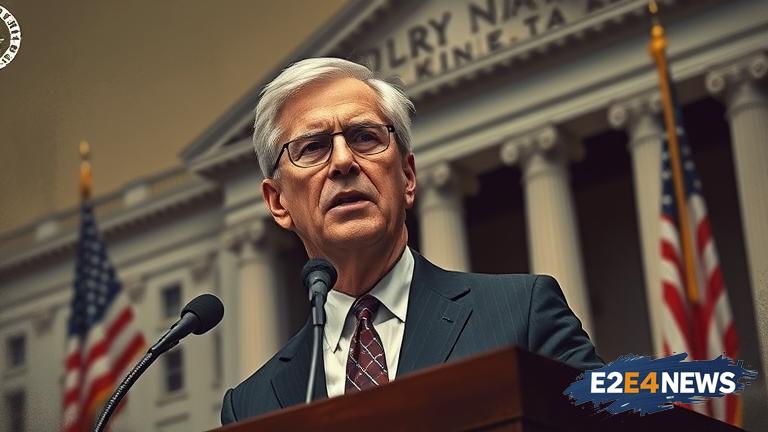The former President of the New York Federal Reserve, Bill Dudley, has sounded the alarm over what he perceives as a genuine threat to the independence of the Federal Reserve. In a recent statement, Dudley emphasized the importance of the Fed’s autonomy in maintaining its credibility and effectiveness in implementing monetary policy. He warned that any attempts to undermine this independence could have far-reaching consequences for the economy. The Federal Reserve, as the central bank of the United States, plays a crucial role in regulating the nation’s monetary policy, including setting interest rates and managing the money supply. Its independence is seen as vital in allowing it to make decisions based on economic data and forecasts, rather than political considerations. Dudley’s comments come at a time when the Fed is facing increased scrutiny and criticism from various quarters, including politicians and market participants. Some have accused the Fed of being too slow to respond to economic changes, while others have criticized its handling of inflation and employment. Despite these challenges, the Fed has consistently maintained its commitment to its dual mandate of maximum employment and price stability. However, Dudley’s warning suggests that the Fed’s ability to fulfill this mandate may be compromised if its independence is eroded. The former NY Fed President’s concerns are not unfounded, as there have been instances in the past where political pressure has been brought to bear on the Fed. For example, during the 2020 presidential election campaign, then-candidate Donald Trump criticized the Fed’s decision to raise interest rates, accusing it of trying to undermine his economic agenda. Similar criticisms have been leveled by other politicians, highlighting the potential risks to the Fed’s independence. Furthermore, the rise of populist movements and the increasing polarization of politics have created an environment in which the Fed’s autonomy may be more vulnerable to attack. In this context, Dudley’s warning serves as a timely reminder of the importance of preserving the Fed’s independence. The consequences of failing to do so could be severe, including a loss of credibility for the Fed and a decline in investor confidence. This, in turn, could lead to higher borrowing costs, reduced economic growth, and increased unemployment. Moreover, a compromised Fed could struggle to respond effectively to future economic crises, potentially exacerbating their impact. In addition to these economic risks, a loss of independence could also undermine the Fed’s ability to regulate the financial system and maintain stability. The Fed’s role in supervising and regulating banks, as well as its participation in international forums such as the Bank for International Settlements, relies on its credibility and autonomy. If these are compromised, the Fed’s effectiveness in these areas could be diminished, potentially leading to a more unstable financial system. In conclusion, Bill Dudley’s warning about the threats to Fed independence is a timely and important reminder of the need to preserve the central bank’s autonomy. The potential consequences of failing to do so are severe and far-reaching, highlighting the importance of protecting the Fed’s independence from political pressure and interference. As the US economy continues to navigate the challenges of the post-pandemic era, the Fed’s ability to make decisions based on economic data and forecasts, rather than political considerations, is more crucial than ever. The Fed’s independence is not just a matter of academic debate, but a vital component of the US economic system, and it is essential that it is preserved. The Fed’s credibility and effectiveness rely on its ability to operate independently, and any attempts to undermine this independence could have severe consequences for the economy. Therefore, it is essential that policymakers and market participants recognize the importance of preserving the Fed’s autonomy and take steps to protect it from political interference. By doing so, they can help ensure that the Fed remains an effective and credible institution, capable of responding to the challenges of the US economy.
